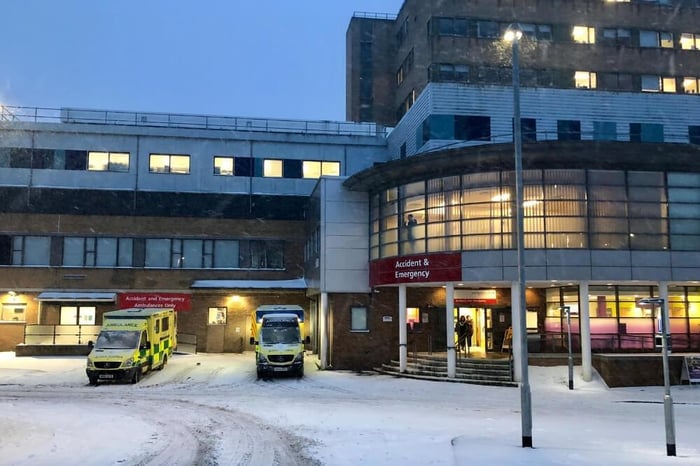
NHS Hot Topics - NHS Winter Pressures
The winter pressures on the NHS and how the NHS is coping with the increased demand is a favourite question and very topical this time of year that might come up at your medical school interview. Whether your interview is a panel or an MMI circuit, questions regarding the NHS and the challenges it faces, are often asked during interviews.
All candidates who reach the interview stage are bright and competent, with competitive grades and stellar personal statements, but this is the stage, at which knowledge on important topics, such as the state and structure of the country’s health service can be gauged. Furthermore, the course is designed in such a way, that medical students are likely to have early exposure to the NHS and social care services, which is why you are expected to have some basic understanding of its operations even at this stage.
To do well if such a question comes up, you want to show that you have read up on the subject prior to your interview and that you are able to clearly structure your answer, in order to provide a comprehensive picture of the problem.
For further help tackling NHS hot topic questions, be sure to check out our Online Self-study Interview Course, which has an interview question bank on NHS-related topics that could come up at an interview, thoroughly explained by our experts for your interview preparation.
REASONS FOR THE NHS WINTER PRESSURES
IMPACT OF WINTER PRESSURES ON THE NHS
In hospitals, this increased admission leads to bed blocking, need to cancel procedures and ultimately, delayed transfer of care. Staff is overworked due to this increased demand, which can contribute to exhaustion and can increase complacency as well as may increase the number of mistakes while performing procedures. Furthermore, the increased amount of patients admitted to the hospital means a higher rate of infections, which ultimately can be troublesome for those admitted.
POSSIBLE SOLUTIONS TO THE NHS WINTER PRESSURES
Having shown substantial knowledge into what the NHS winter pressures are, what causes them and how they impact the NHS, the last thing you need to do to ace your med school interview is show that you have considered what solutions could or are being implemented to relieve that pressure.

One such is the NHS England proposed Hospital to Home service, which provides care to patients in their home, with healthcare professionals visiting them up to several times a day to administer medication, change dressings, and carry out other minor procedures that do not require hospital admission. This service is very useful in relieving the winter pressures felt by the NHS by improving the discharge rate for non-critical patients.
Another important solution to consider is implementation of preventative measures. Consider the increased visit rate to GPs and hospitals due to flu cases. The NHS rolls out a yearly flu vaccination programme, which urges all vulnerable groups to get vaccinated. This can prevent them from catching the flu, which in pregnant women, elderly, as well as small children, can lead to bigger complications that put their health at risk and put the health service under great strain in an effort to meet the demand.
If you want to up your game for your interviews, you could strengthen your knowledge by reading a topical paper from a trusted source such as the British Medical Journal's Flu Vaccines: An Annual Challenge, detailing the administration protocol of flu vaccines and its benefits.

The winter pressures are often seen in the form of frail elderly patients visiting hospital and A&E with fractures they have gotten from having slipped on ice. For these groups of patients, investing in occupational health and social care services, who can examine those patients and decide that providing them with walking aids or discussing introducing a carer in their home might reduce the incidence of such falls, and subsequently improve both their quality of life and alleviate the strain on the NHS.
Lastly, you can also mention the NHS new mental health 111 service, which tackles the problem of over-admission of patients with mental health problems and is said to have reduced A&E visits by a third.
We hope that this was a helpful overview of the NHS winter pressures issue and you feel more confident tackling it if it comes up as a question. Don't hesitate to send us any questions or comments by email at [email protected]. Good luck in your interview!



